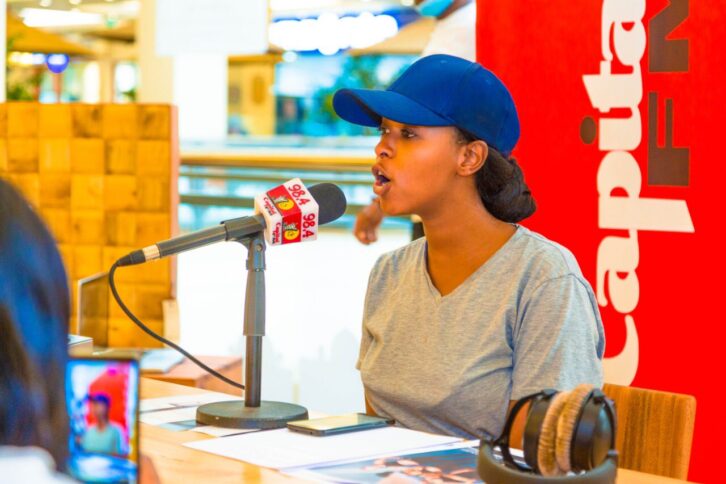Radio World’s “Guest Commentaries” section provides a platform for industry thought leaders and other readers to share their perspective on radio news, technological trends and more. If you’d like to contribute a commentary, or reply to an already published piece, send a submission to [email protected].
The author is an award-winning youth advocate. He is the co-founder of a number of community initiatives including the Youth Congress, a premier youth-led organization in Kenya.
Anne Mwaura is not only an influential radio presenter in Africa but also a passionate advocate for mental health, and an inspiring example of how to use radio to champion it. In this interview with Raphael Obonyo, she discusses how she uses radio as a platform to promote mental health.
Raphael Obonyo: Tell us a bit about yourself; how did you get into radio?
Anne Mwaura: After applying for a competition called “Capital One,” I won and that was the start of my career in radio. I started on a show at the time called “Hits Not Homework” then later moved to the syndicated mid morning show “The Fuse” on Capital FM Kenya.
Obonyo: People who only know you as a presenter may not know you as a mental health advocate. Why mental health?
Mwaura: I am very open about my own struggles and triumphs when it comes to mental illness and health. Our mental health is one of the most vital factors in our lives. Mental health determines how we handle life, how we cope with others and how we live. So when that is not well, we need to do everything we can to manage [it] and feel better.

Obonyo: Do you find radio a useful medium to advocate for mental health?
Mwaura: Radio is absolutely an amazing place to discuss mental health and mental illness. Radio reaches listeners in the most remote areas that may not even know what mental health is about. It allows audiences to get the correct information and seek professional help.
Obonyo: Do you host any radio programs on mental health? Please tell us about the show.
Mwaura: We have a platform called Bonga [which] offers free counseling online. It is an anonymous platform that connects thousands of people to a trained counselor to help them break the stigma and talk freely. It also offers peer to peer counseling.
Obonyo: How much change have you been able to bring through your radio show?
Mwaura: In the last five years there has been tremendous change when it comes to the conversation of mental health. More people are definitely talking, but now we are faced with a new problem: action. Talking is a great first step but it’s important to start looking into action.
Obonyo: Have you found many people (presenters and listeners) who also use radio to advocate for mental health?
Mwaura: Throughout our lives, multiple individuals, social and structural determinants may combine to protect or undermine our mental health and shift our position on mental health. Through mediums like radio, you are guaranteed well researched and relatable real-time experiences. You are reminded you’re not alone [while] you are educated and informed. Radio allows everyone to get the right tools to tackle any form of mental illness.
[Also by this author: “How Radio Is Promoting Peace in Africa“]










